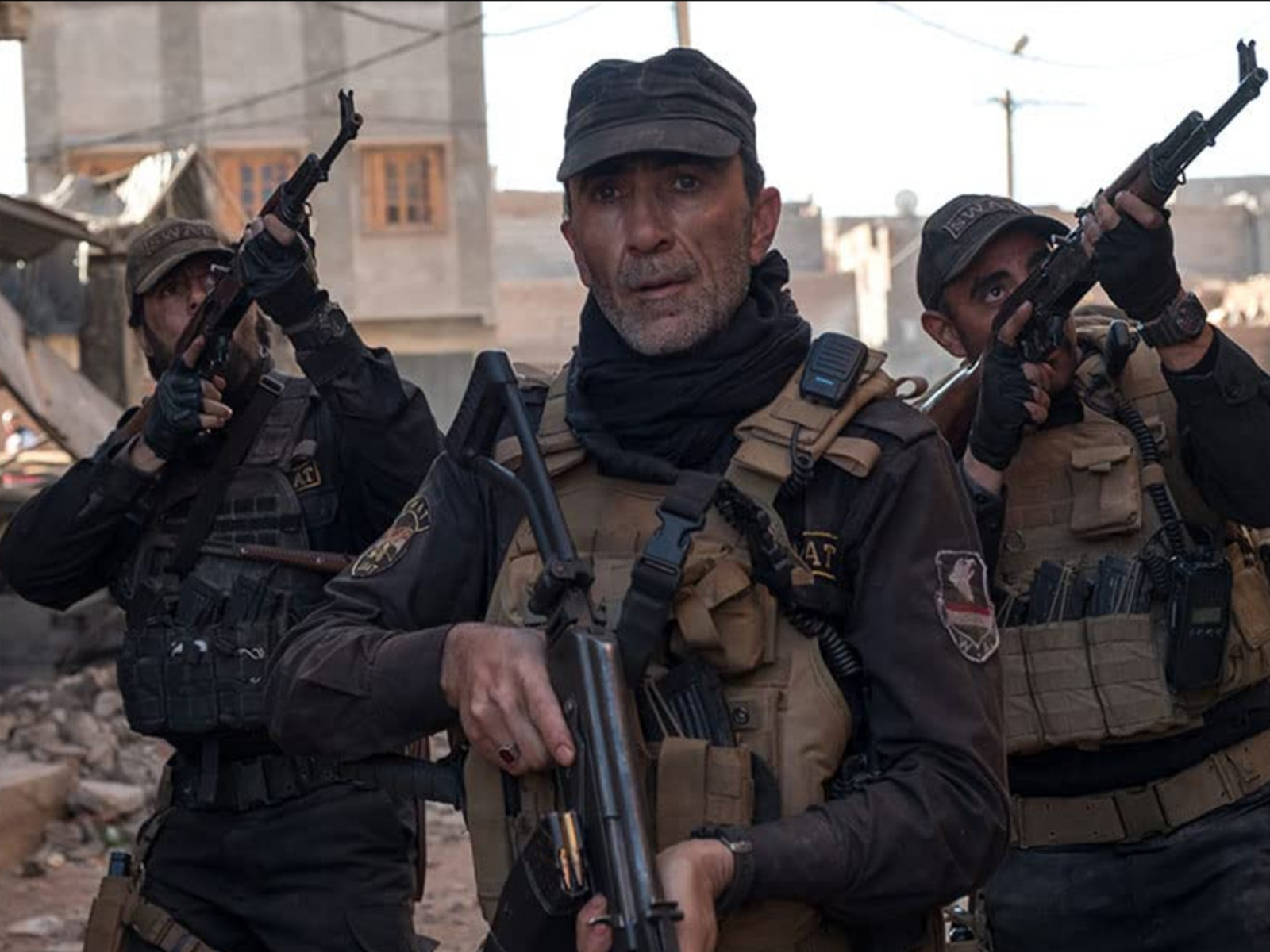
- Golden Globe Awards
Mosul (Iraq): Interview with Director Matthew Michael Carnahan
Based on by Luke Mogelson’s 2017 New Yorker article “The Desperate Battle to Destroy ISIS”, Mosul is a true to life action movie about a renegade Iraqi police SWAT team who disobey orders. They push fiercely against ISIS guerrilla street fights in order to save what’s left of their beloved home city of Mosul, in Northern Iraq. The film is produced and financed by brothers Anthony and Joe Russo, directors of Avengers and Cherry, who gave first time director and writer Matthew Michael Carnahan, his chance to helm the film, shot in Morocco in the Iraqi language.
Well known Iraqi actor Suhail Dabbach, previously seen by Western audiences in Redacted and The Hurt Locker, is the SWAT team’s commander Major Jaseem. Along with the cast, Dabbach was greeted by an emotional seven-minute standing ovation in the Sala Grande when the movie was first shown during the Venice Film Festival in 2019.
We spoke about the film with director Carnahan, who has also written Deepwater Horizon, Dark Waters, and 21 Bridges.
How true and accurate are the battle scenes in showing what the soldiers went through?
To me the two things we had to get right for anything else to work in the movie was getting the dialect and the language right. And a close second was getting all the military and war pieces correct. Because if that wasn’t believable, if people didn’t look at them and think “that’s a team who has done this countless times, who have killed and died together”, then nothing else was going to be all that believable.
What did you do as director to make it believable?
I threw these guys into dialect coaching, and the whole team for three weeks did a full urban combat boot camp run by ex-military, one of whom actually trained in Iraq. And it was hard, I mean, for ten hours a day these guys went through an abandoned hotel outside of Marrakech doing their thing, and I think you see it in the film, you never question that these guys haven’t done this. So that, the veracity of it, was everything for me and it’s how I approached the action as well. I didn’t want anything to be hyperbolic or overblown or spectacle for spectacle’s sake. I did a lot of research, talked to a lot of people who had been in firefights. And this thing that kept coming up was it’s over before you realize it. It could last ten minutes but it seems like it’s a second. And then other moments seem like an eternity, so I tried to capture that as best as I could.
Tell us about this team in particular?
They would go from walking down a street, talking, smoking cigarettes to fighting for their lives for 45 minutes to watching a soap opera, because they were lucky enough to find a TV that still worked, and that’s really how their life is or was when Luke wrote the article. I tried to get that as right as I possibly could.
Was there ever any question of this not being in Iraqi language?
Not for me, never. And the Russo Bros – God bless them – loved the suggestion. Eight out of ten people in Hollywood usually hang up the phone or get off of it and be like “Yeah, we are going to get back to you.”
Did you and the Russo brothers know each other before this film?
No, so it was an honor when they sent me this article; for me these are the things I love to do, these true stories that we all think we know, with these great elements that no one knows. Take Deepwater Horizon: the reason I got involved in that is because I didn’t know that eleven guys died on that rig. All you heard about was the ecological spill and that was awful, but there was also a human tragedy that no one really recognized. And this was that times five. Until I read that article, it’s embarrassing to admit, I didn’t realize this SWAT team existed, I didn’t know these people had existed in Iraq: especially in my country, which has been at war in that place on and off for 30 years, since I was a kid. When I read that article, I was blown away by how little I knew about them and how wonderful these guys seemed and how brutal those conditions were. But they were there and fought for the right reasons, ultimately to rebuild their city. That to me is this human element, the fundamental human thing that is bigger and better than all of our differences.